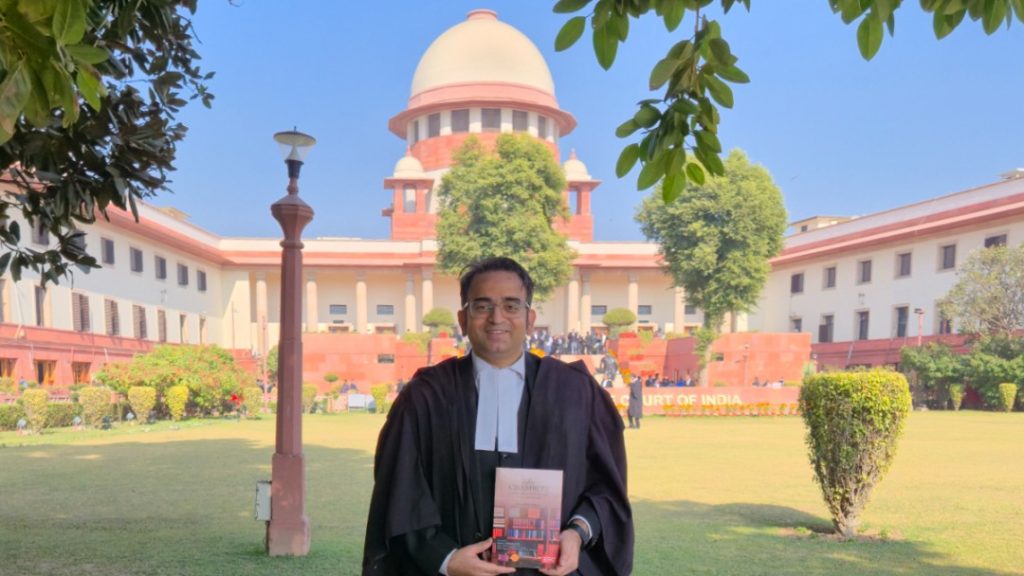
In an exclusive conversation, In Chambers author and seasoned lawyer Talha Abdul Rahman shares what law schools often overlook — the quiet struggles, the invisible strength, and the ethical dilemmas young lawyers silently endure. His book isn’t just a guide; it’s a mentor in print, offering clarity, courage, and real-world wisdom for those just stepping into the legal profession.

“Your first arguments may not win cases, but they shape how you learn to reflect.”
These words from Talha Abdul Rahman will stay with you — honest, human, and deeply resonant for anyone walking the path of law.
What Inspired In Chambers?
“There is very little guidance that is available in writing, and not everyone gets a good mentor.”
The seed for In Chambers was sown during those quiet moments in court corridors, watching young lawyers wrestle with uncertainty, often alone and unsure.
Given that I have been around for over 15 years, I get the feeling that very often in the past, I found myself doubting my place, trying to find meaning beyond just “winning” a case. This led me to create a video course with Eastern Book Company. However, a video course on the web has its own limitations. Thus, the book began as an attempt to answer these questions for myself. Eventually, it became something I wanted to offer others walking the same uncertain path.
On the Importance of Advocacy
“Your first arguments may not win cases, but they shape how you learn to stand, to speak, and, more importantly, to reflect.”
Advocacy isn’t just courtroom performance, and to me it’s a way of thinking, listening, and engaging with the world. Early in your career, it ought to teach you humility. Law school may give you theory (which is very important), but real advocacy introduces you to people: clients with real pain, judges with limited time, and opponents with stronger arguments or sometimes rhetoric.
It forces you to grow fast. Those formative years are when you start building not just skill, but judgment. Many a time, bad facts have received good orders – because the advocates were on their best behaviour. It is a skill that is imbibed.
Writing Tips to Aspiring Lawyers
“If you’re a young lawyer with something to say, don’t wait for credentials—start now, even if it’s just a paragraph a day”
Write like you’d argue — with clarity, honesty, and structure. Writing helped me clarify what I truly believed. It started with scribbles in margins, fragments of doubt or small parchi after a hearing, and eventually grew into essays and reflections. But more than anything, writing demands patience. Don’t aim for perfection. Aim for the best, but with consciousness of time constraints.
After writing a paragraph, do take a moment to reflect whether what you have just written can be improved. I find that many of my younger colleagues at the bar take written advocacy not very seriously.
On Decision-Making and Pitfalls
“Good decisions require perspective—and that often comes from listening more than speaking.”
The law gives you tools, but not always wisdom. Early on, many of us mistake aggression for competence. We ignore the quiet wisdom of court clerks, senior colleagues, and even our clients. The biggest pitfall is ego-it blinds you to nuance. To avoid that, seek mentors, ask dumb questions, own your mistakes, and never lose sight of the human stakes in each case. Decision-making improves when you’re rooted in values, not just outcomes.
A Message to First-Generation & Non-Elite Lawyers
“You don’t need a famous surname or an elite law school to find meaning in the law.”
I’ve seen brilliance emerge from unexpected places. I am from a small town and first generation, and over time, I have realised that perseverance and hard work pay off. One thing that you have cultivated in today’s time and day is the ability to do “deep work”. Too many distractions around, but learning belongs to those who focus.
This book is for all struggling advocates. It says: you belong, and the profession offers mentorship opportunities. Your honesty, your resilience, your sense of idealism for the law are your prized assets.
Future Writing Plans?
Yes, absolutely. One growing concern I’ve felt is how deeply fragmented our legal understanding has become. With an ever-expanding number of judgments from all forums, we’re beginning to treat judicial observations—often case-specific and context-bound—as if they were settled principles. In that flood, we risk losing the essentials—the doctrinal foundations that give direction to jurisprudence across subjects.
My next project is likely to explore those fundamentals. I want to trace the jurisprudential roots that endure across time, the basic scaffolding of subjects like constitutional law, criminal justice, and civil procedure, which help us reorient ourselves. The idea is to offer clarity based on essential legal principles. Let’s see how much time I can manage for that!
This was Talha Abdul Rahman on what it truly takes to walk the path of law. If his clarity and candor resonated with you, explore more in his book In Chambers, now available on the EBC Webstore.
Related Articles











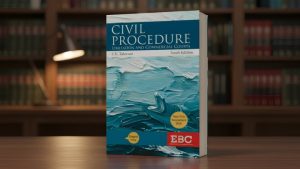

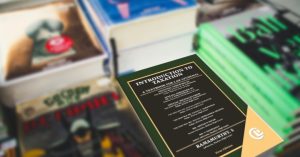
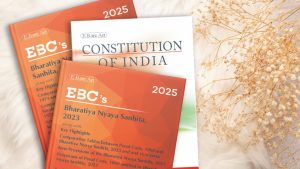
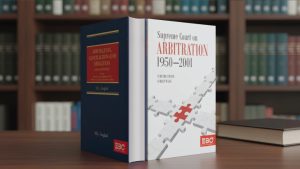
Lawyer Sonia
Thank you, Talha Abdul Rahman, for this inspiring and insightful advice for every young lawyer starting out. Your blog offers practical mentorship, professional guidance, and powerful motivation for ambitious legal beginners.
Prashastha Legal
Thanks for the information, Talha Abdul Rahman, for this inspiring and insightful advice for every young lawyer.